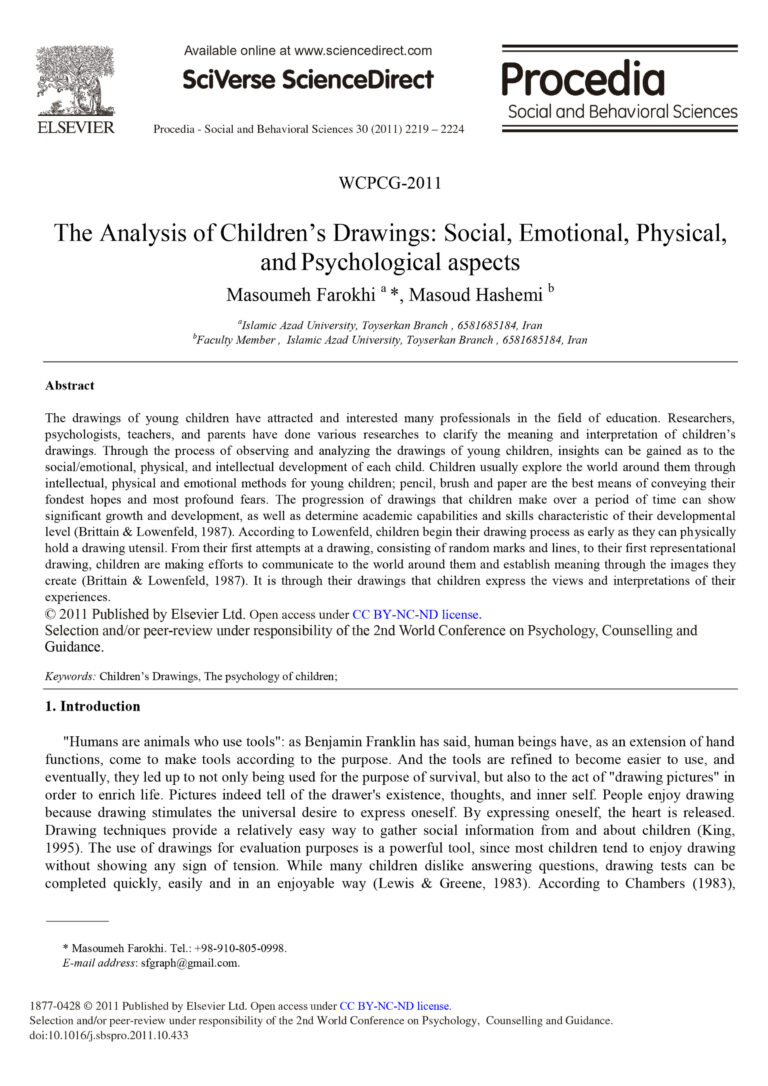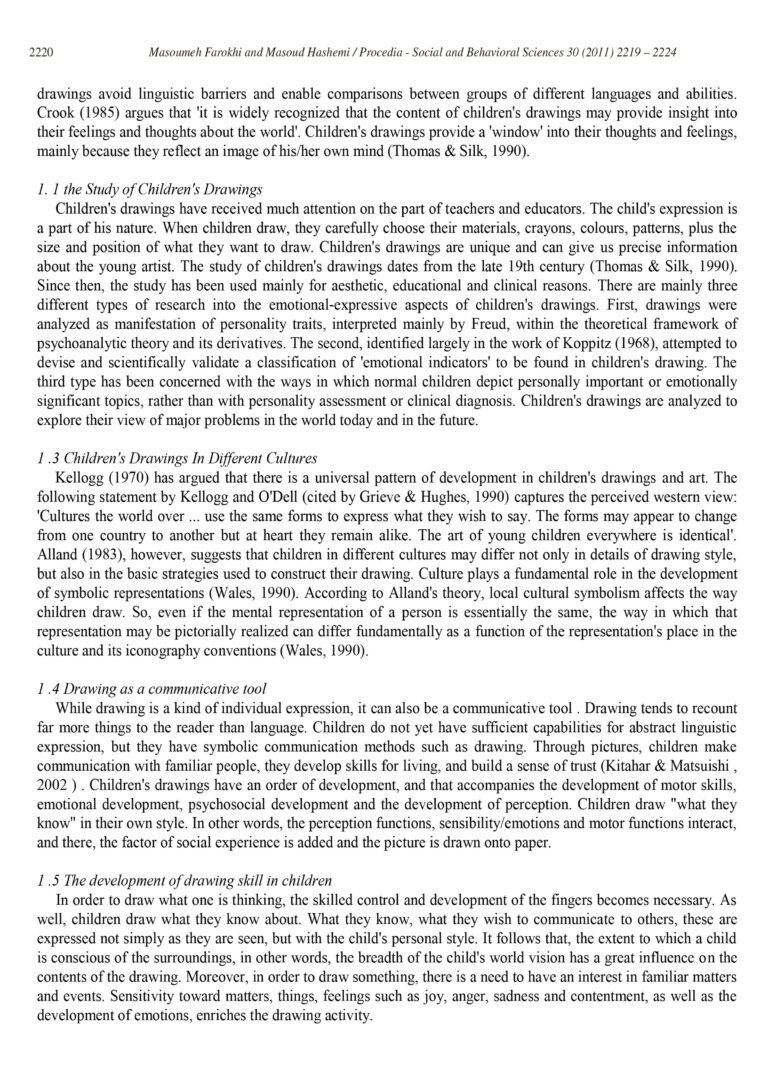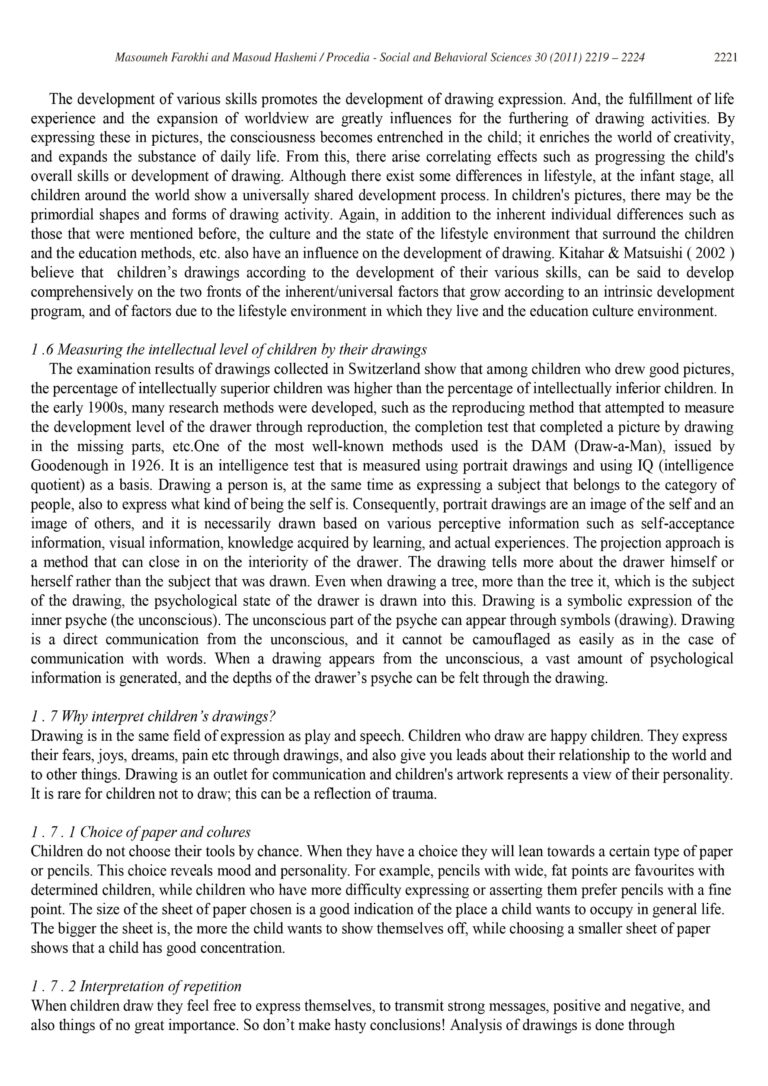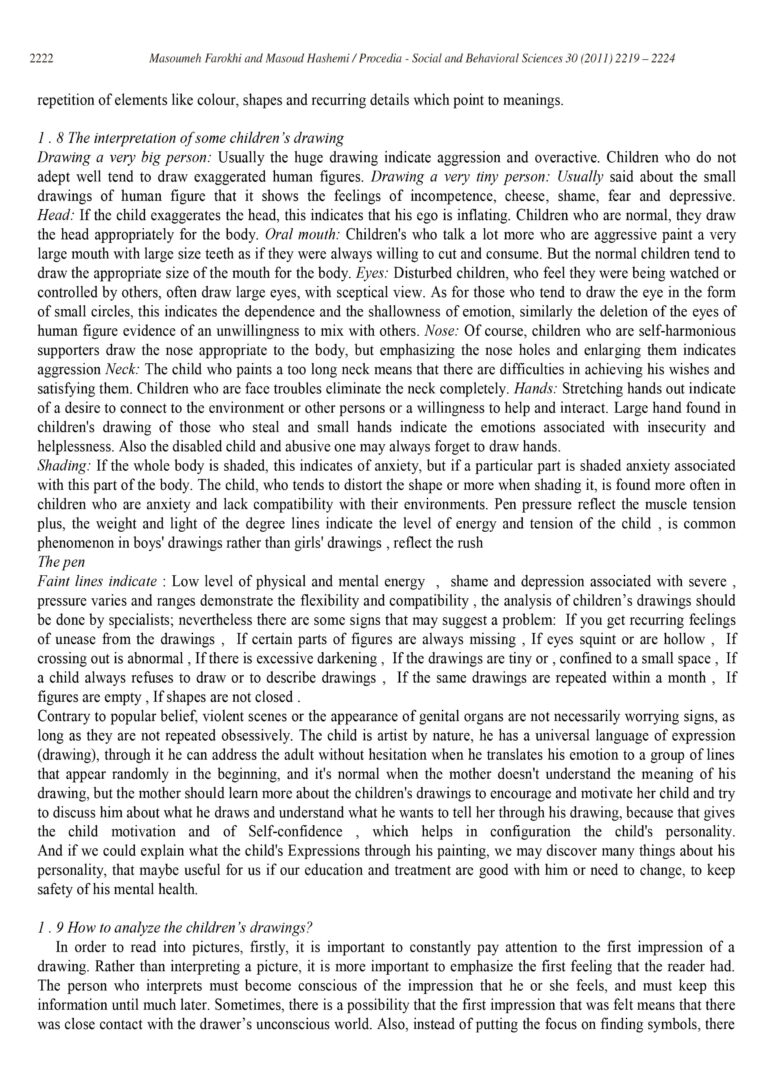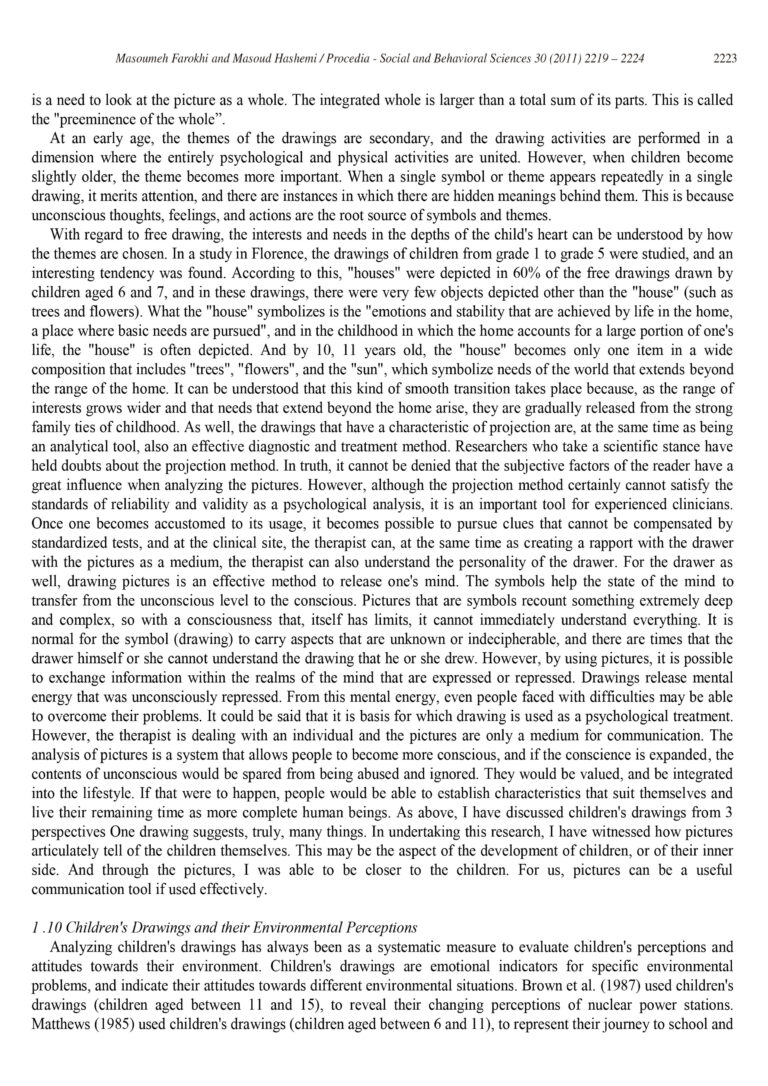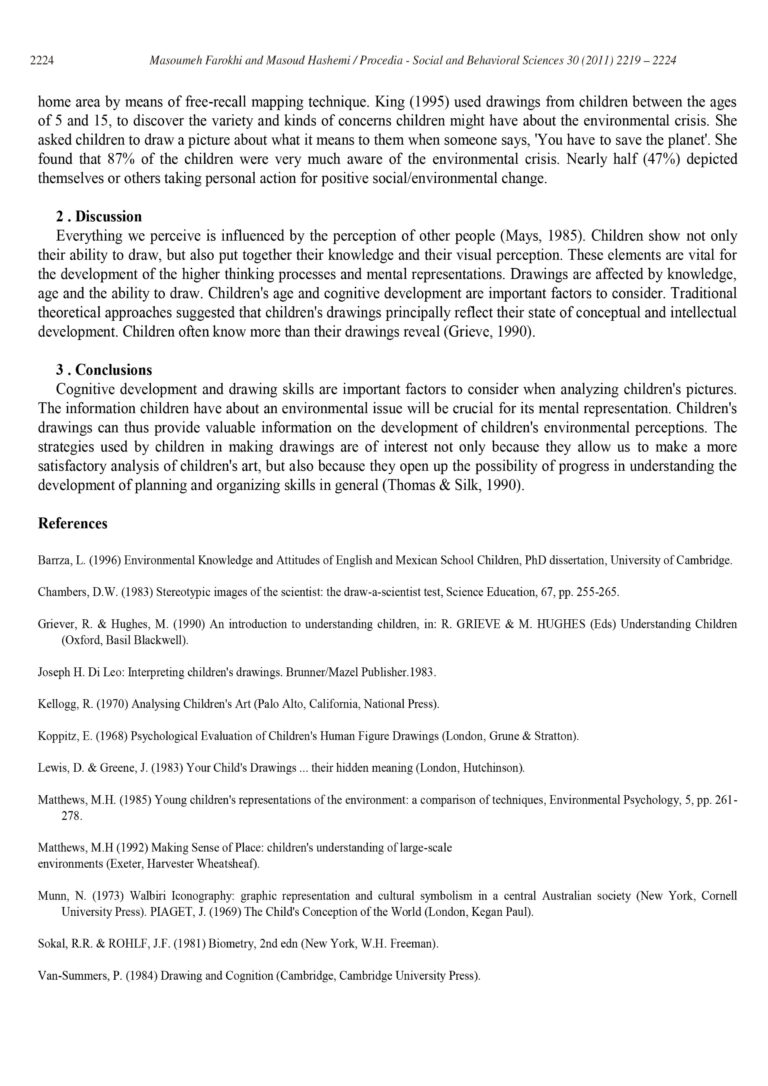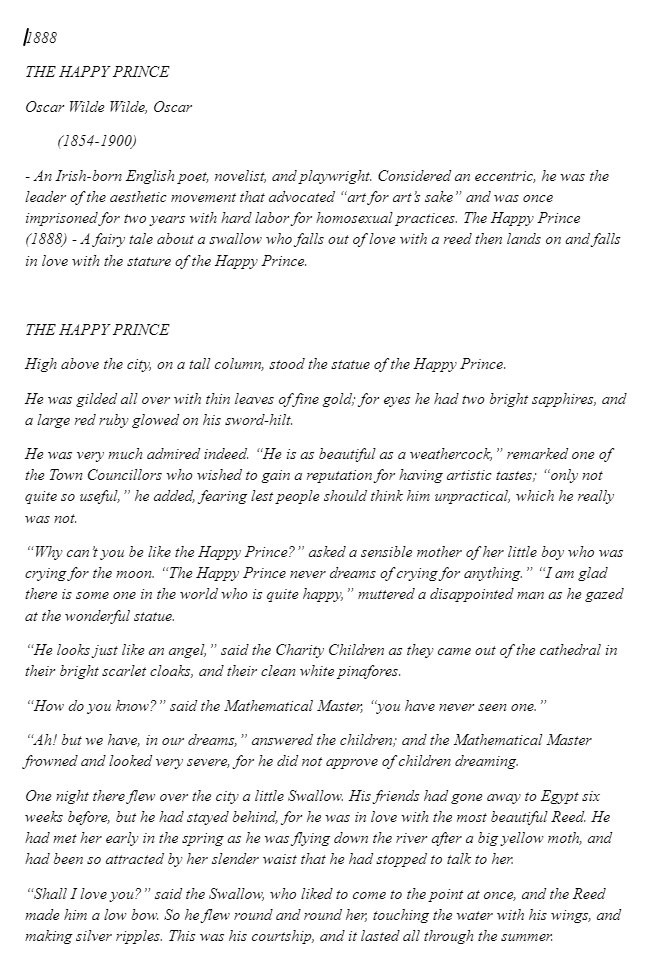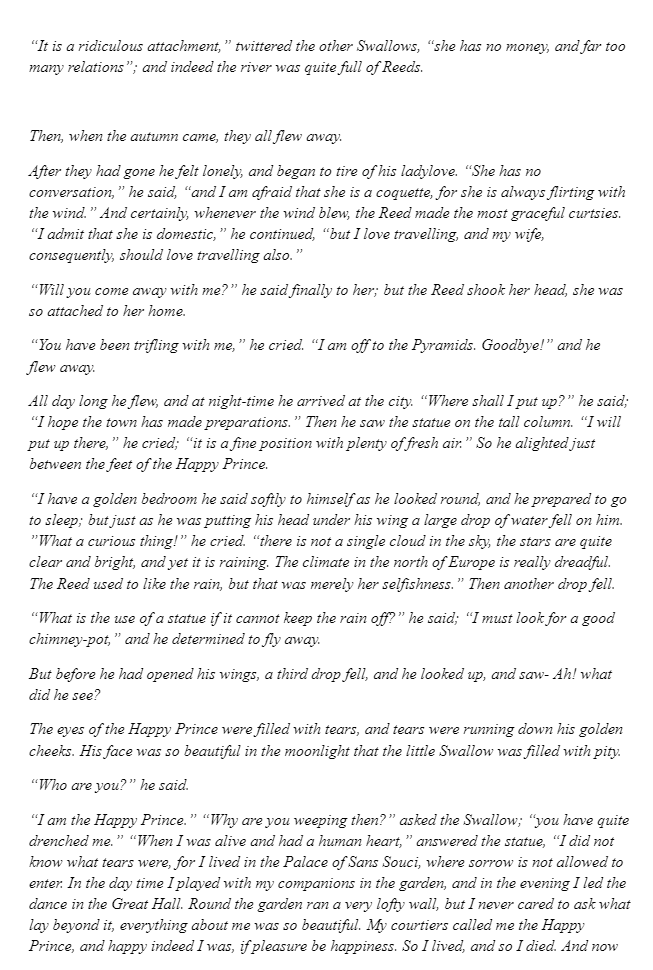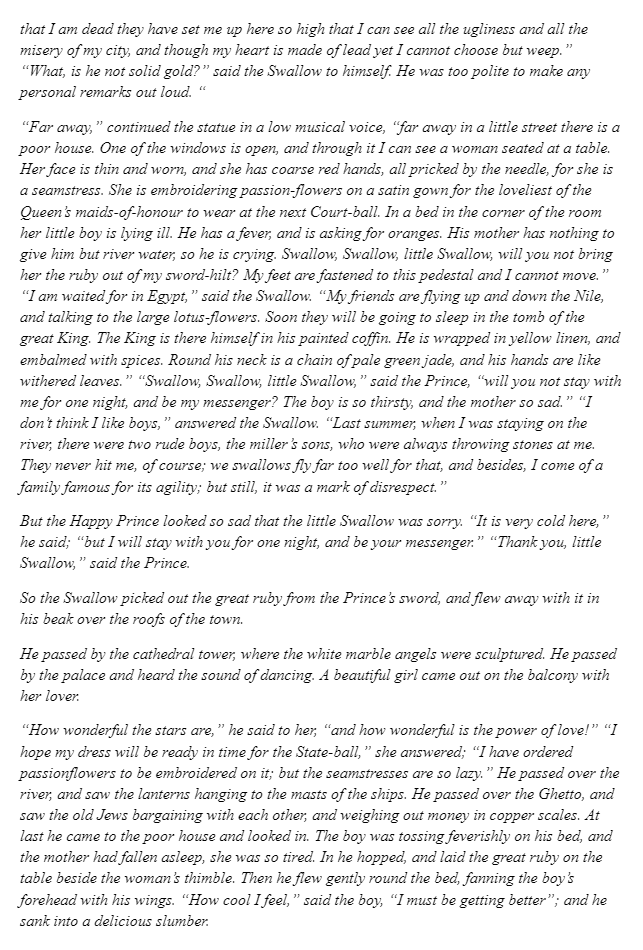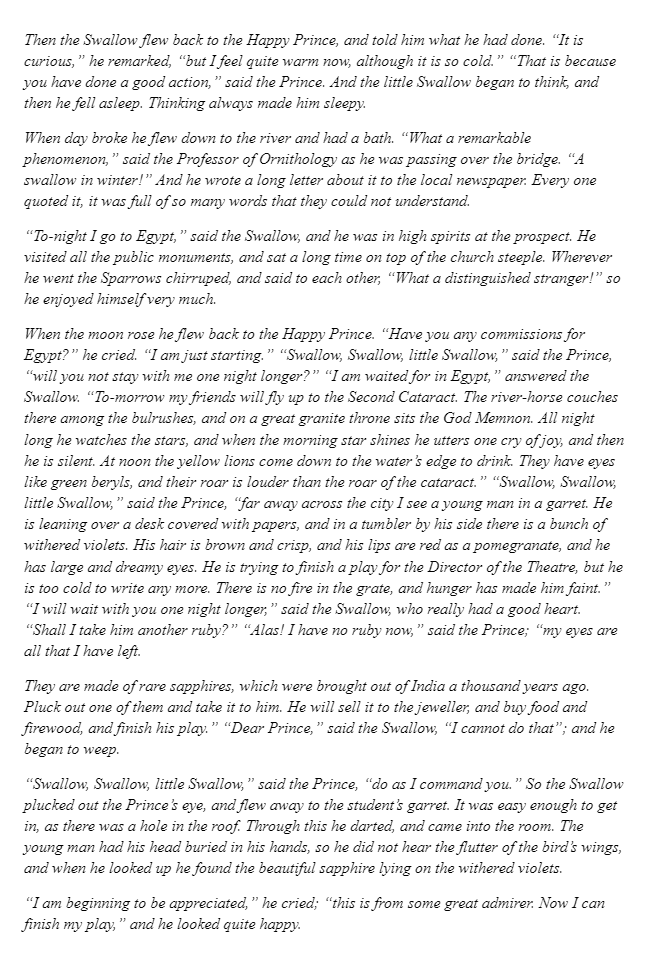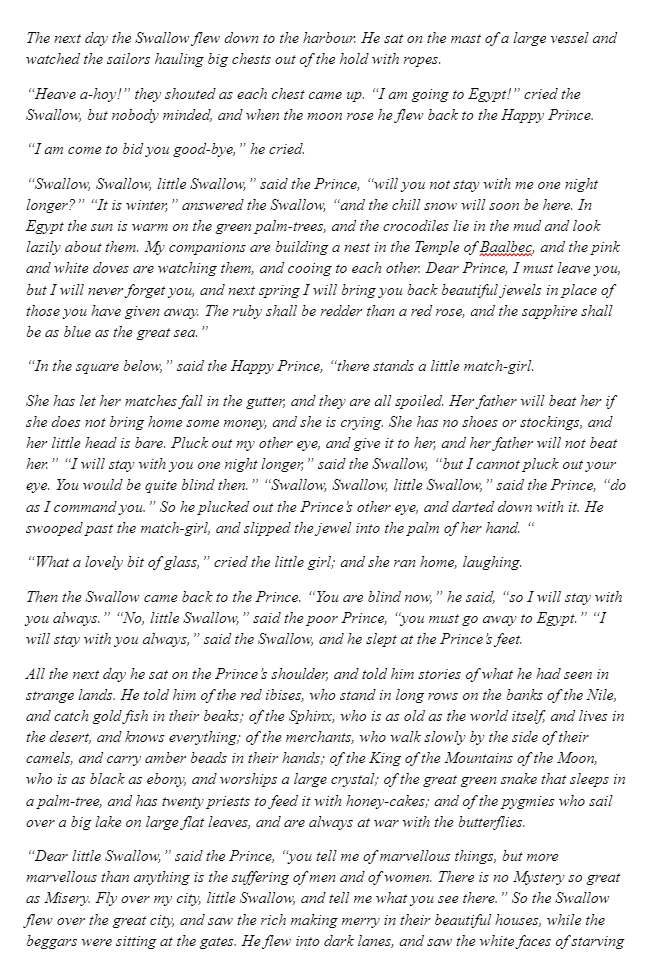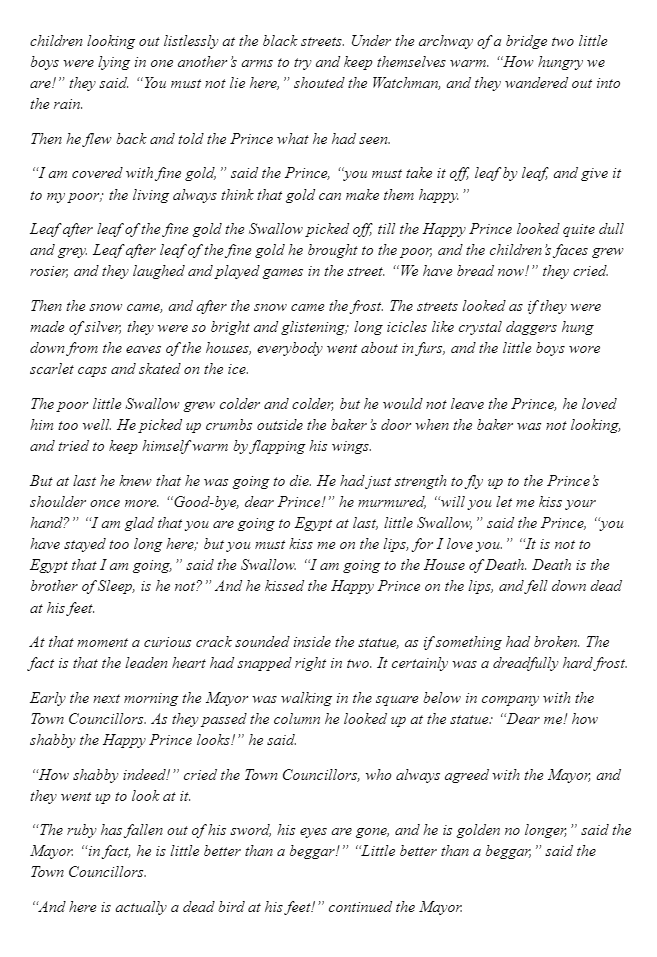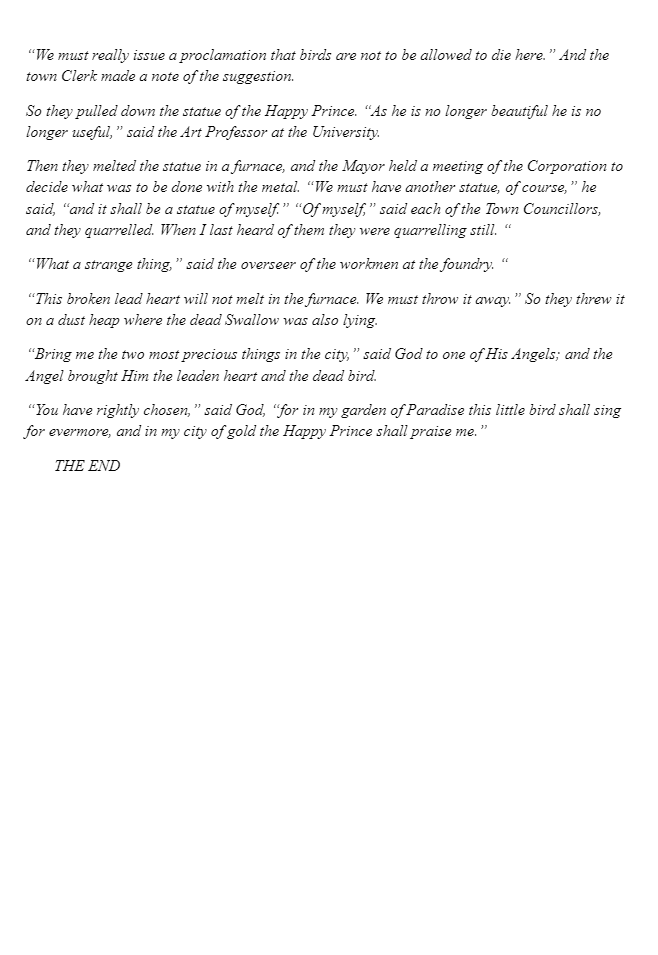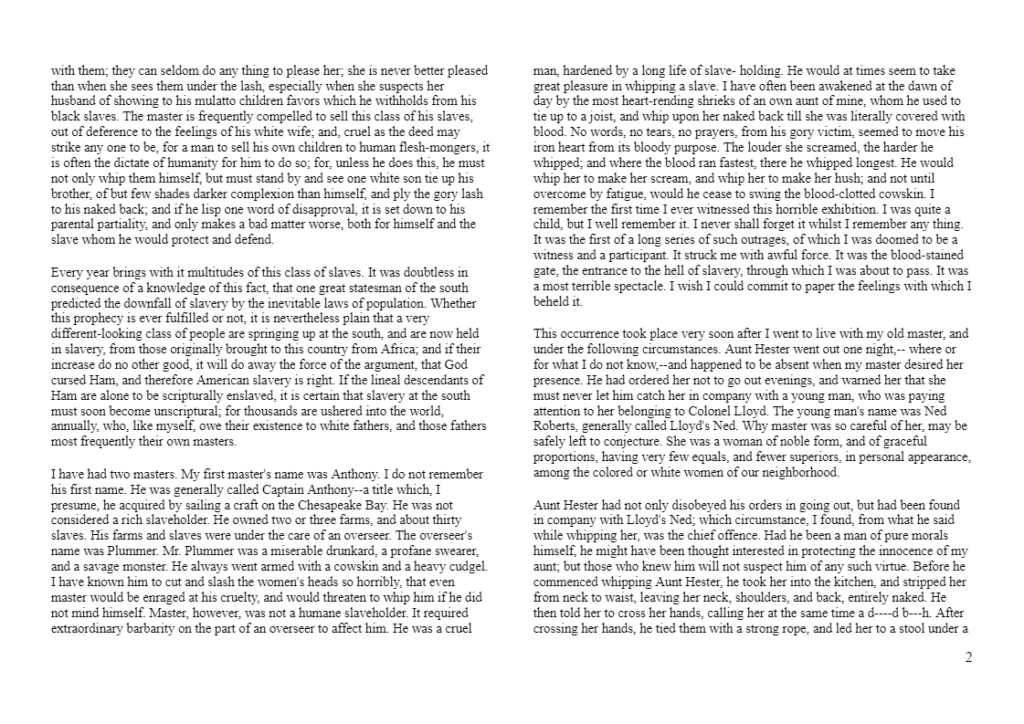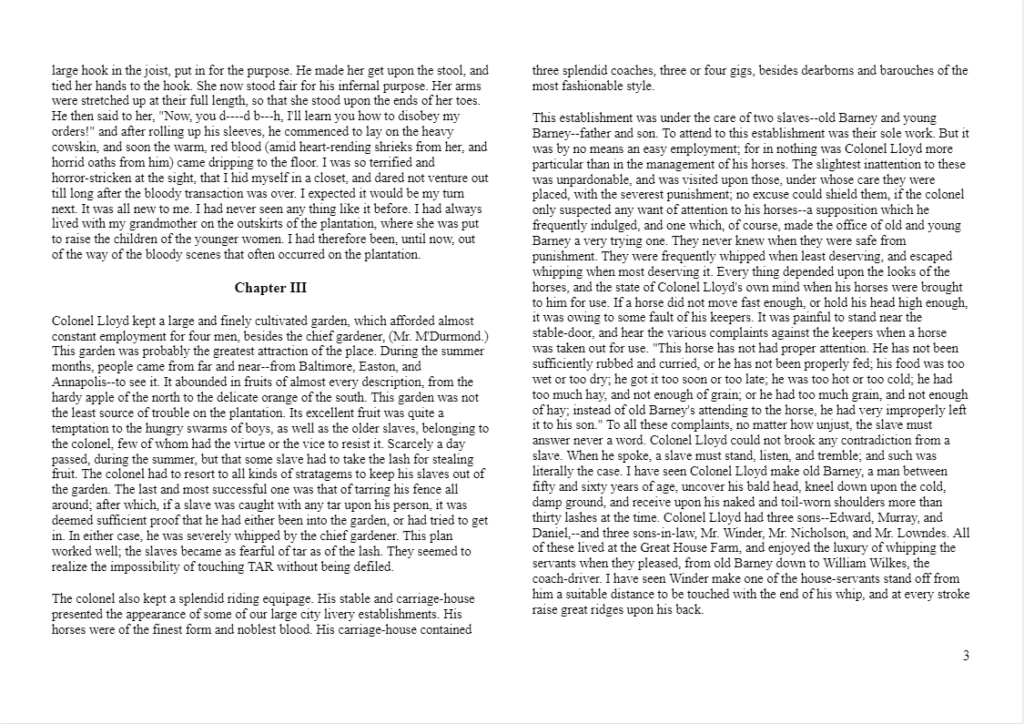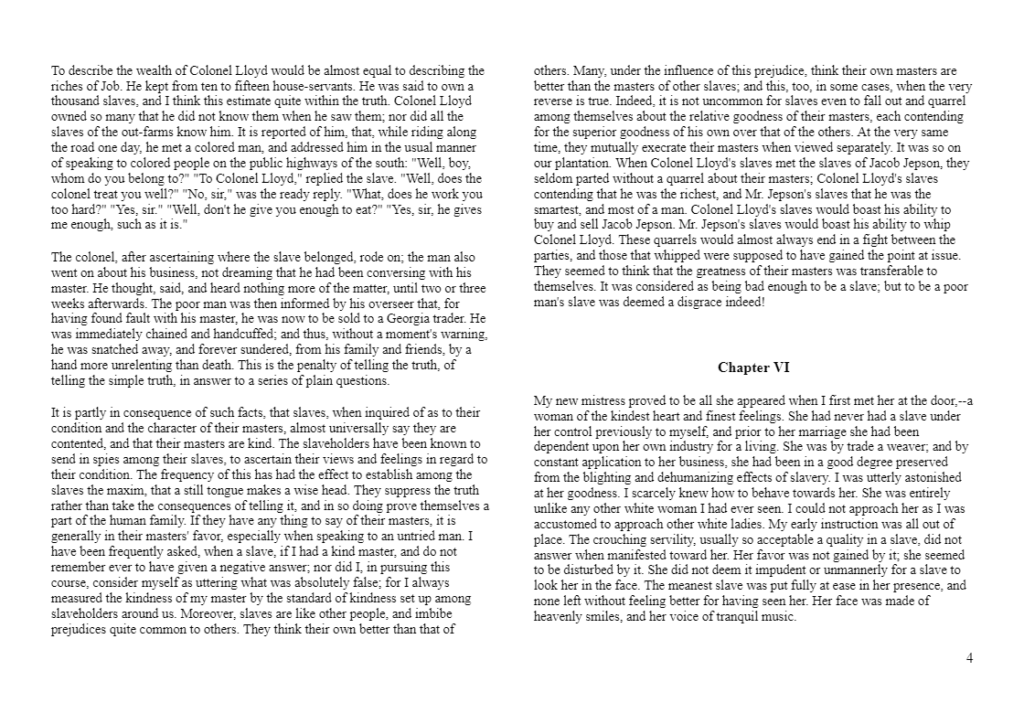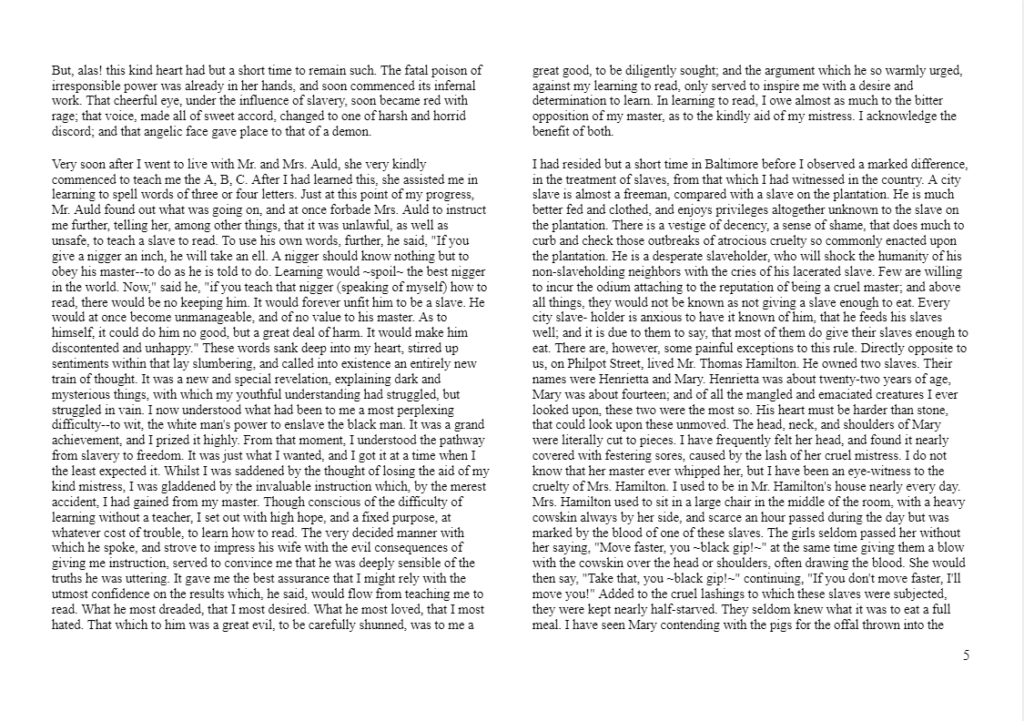READING
The human acquisition of language
This is an article from Zgourides, G. (2007). Developmental Psychology (1ed.). IDG Books Worldwide. (chapter 4). This is an interesting article on the human acquisition of language. I believe everyone who likes language learning would benefit from reading this article. Zgourides describes how toddlers develop language skills in different life’s stages and defines these stages. He also explains how important the relationship with their caregivers is for the toddler’s development.
Children's drawing
This is an article about how to analyse children’s drawing, I have decided to share it because it is from The Islamic Azad University, Toyserkan Branch Iran. It includes studies on children’s drawings and explains how we can use them for further studies in social, emotional, physical, and psychological sciences. The article contains interesting facts and is a good example of scientific writing. It is amazing how a simple drawing can tell you a lot about a child’s personality. I liked this article because I learnt a lot of new information. I enjoy reading the article.
The happy prince
This is a beautiful story for children by Oscar Wilde published in May 1888. A fairy tale about a young Prince who lives and dies in a Palace where sadness is not allowed to enter. When he dies his statue is set on a tall column. From this height, he can see all the misery in the city. He weeps and wants to help his people. I enjoyed the reading. I want to share it with all of you.
Ralph Waldo Emerson
An American essayist, poet, and popular philosopher, Ralph Waldo Emerson (1803–82) began his career as a Unitarian minister in Boston, but achieved worldwide fame as a lecturer and the author of such essays as “Self-Reliance,” “History,” “The Over-Soul,” and “Fate.” Drawing on English and German Romanticism, Neoplatonism, Kantianism, and Hinduism, Emerson developed a metaphysics of process, an epistemology of moods, and an “existentialist” ethic of self-improvement. He influenced generations of Americans, from his friend Henry David Thoreau to John Dewey, and in Europe, Friedrich Nietzsche, who takes up such Emersonian themes as power, fate, the uses of poetry and history, and the critique of Christianity.
These are some chapters from “Self-Reliance” by Ralph Waldo Emerson. I read them and after reading them I could not stop. I believe this is an Author we need to know more about because of his philosophy. When he wrote this essay he was mourning the death of his young son, this essay is great and I am sure you would appreciate it.
FRANKENSTEIN BY MARY SHELLEY.
Mary Shelley Biography:
Mary Shelley was born Mary Wollstonecraft Godwin on August 30, 1797, in London, England. She was the daughter of philosopher and political writer William Godwin and famed feminist Mary Wollstonecraft — the author of The Vindication of the Rights of Woman (1792). Sadly for Shelley, she never really knew her mother who died shortly after her birth. Her father William Godwin was left to care for Shelley and her older half-sister Fanny Imlay.
Shelley died of brain cancer on February 1, 1851, at age 53, in London, England. She was buried at St. Peter’s Church in Bournemouth and laid to rest with the cremated remains of her late husband’s heart.
Click below to read the eBook “Frankenstein by Mary Shelley”
NARRATIVE OF THE LIFE OF FREDERICK DOUGLASS, AN AMERICAN SLAVE. WRITTEN BY HIMSELF.
FREDERICK DOUGLASS: original name Frederick Augustus Washington Bailey, (born February 1818, Talbot county, Maryland, U.S.—died February 20, 1895, Washington, D.C.), African American abolitionist, orator, newspaper publisher, and author who is famous for his first autobiography, Narrative of the Life of Frederick Douglass, an American Slave, Written by Himself. He became the first Black U.S. marshal and was the most photographed American man of the 19th century.

